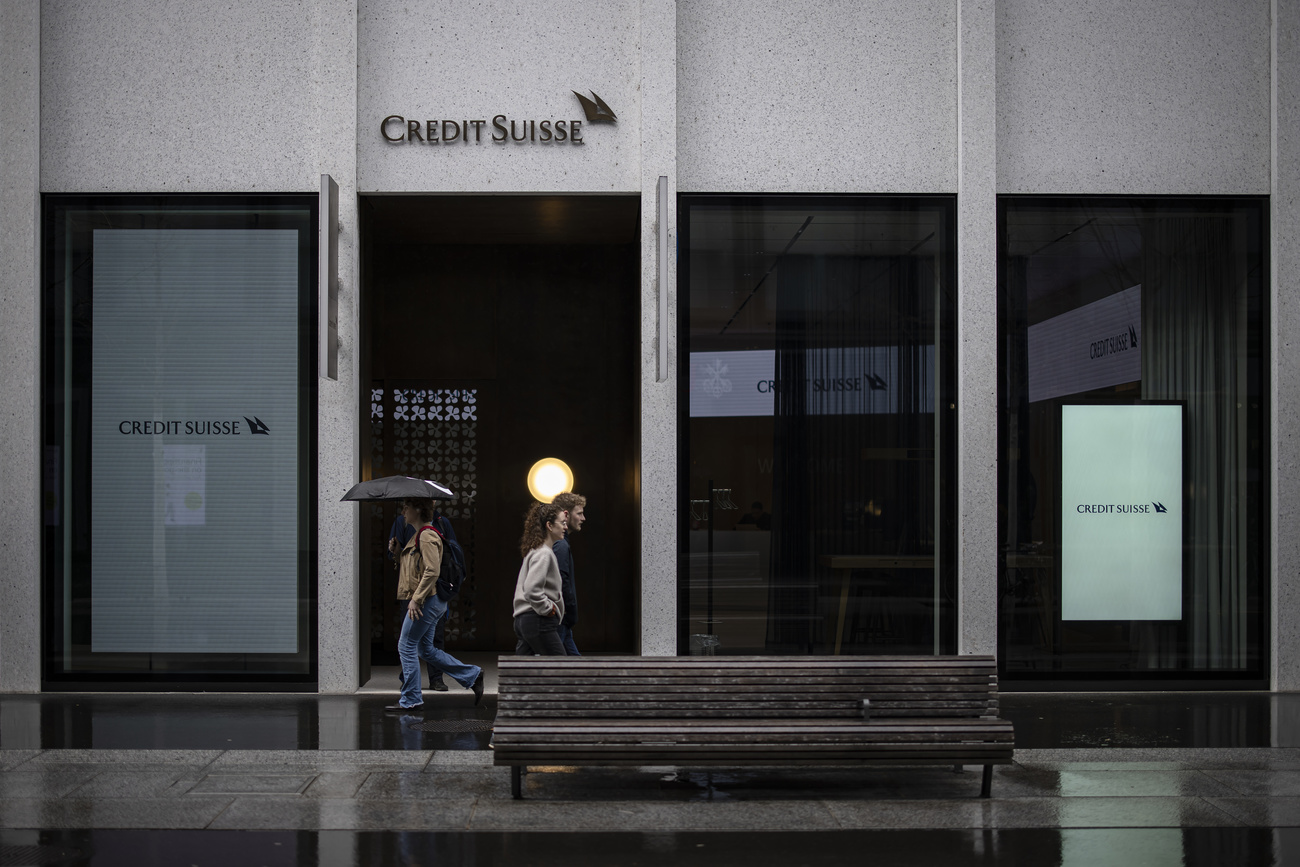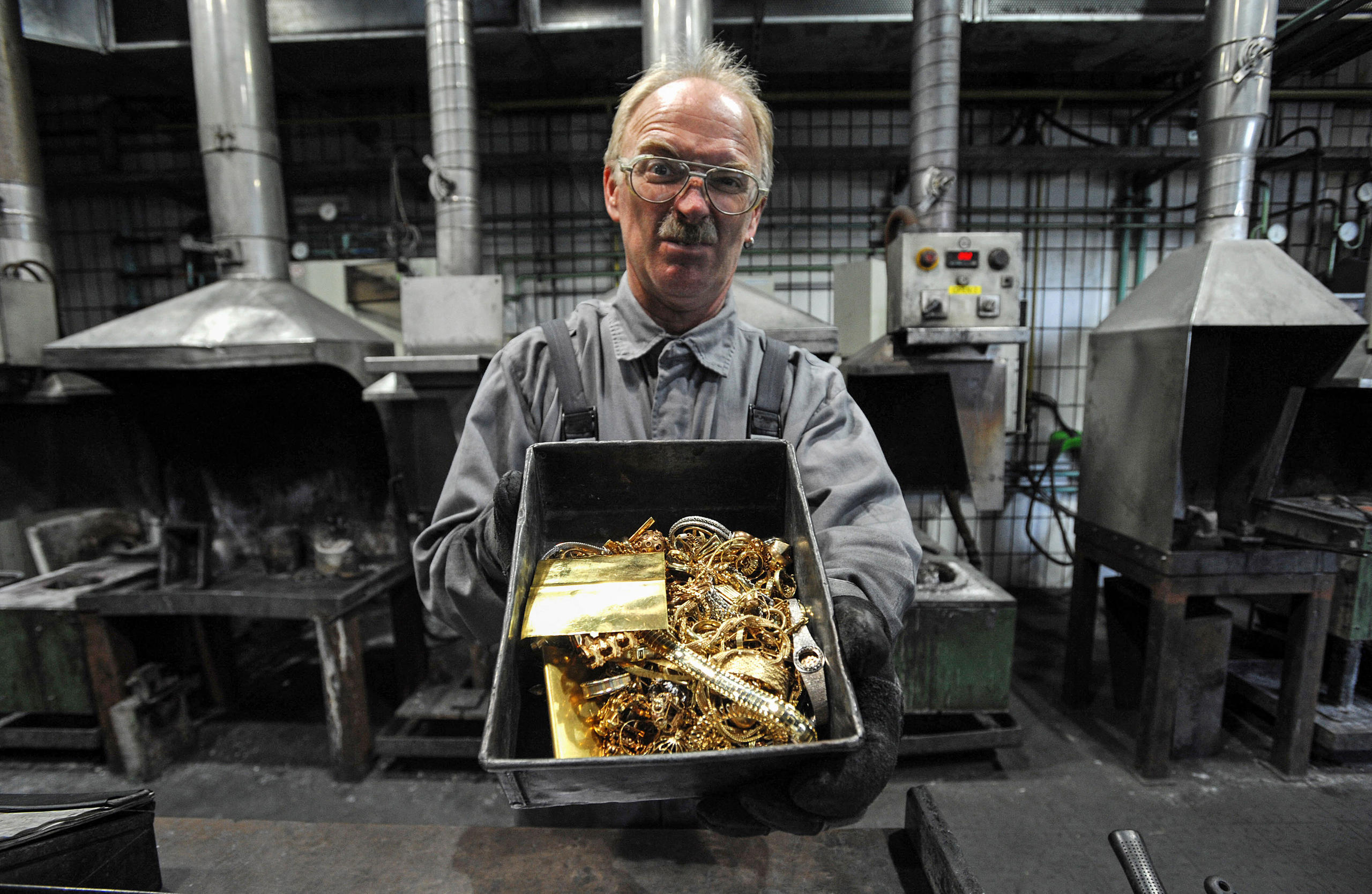
How the Swiss economy is faring: the second-quarter check-up

Sluggish growth, a sunny outlook for Swiss tourism, and luxury watches that are selling like hotcakes: these are some of the highlights of the second quarter of 2023 for the Swiss economy.
Growth slows and inflation persists
In mid-June the State Secretariat for Economic Affairs (SECO) confirmed its March forecasts: government experts expect Swiss gross domestic product (GDP) to grow by 0.8% in 2023, and to accelerate to 1.8% next year. In 2022 Swiss GDP growth was 2.1%.
Domestic demand and rising industrial exports helped sustain growth in the first half of the year. However, the Swiss economy is likely to slow down somewhat in the second half of the year, due in particular to the restrictive monetary policies pursued by the European and North American central banks, which are likely to dampen international demand, according to SECO.
For its part, the Swiss National Bank (SNB) has lowered its inflation forecast for the current year to 2.2%, compared with 2.6% previously. This relative optimism can be explained by the fall in oil and gas prices, following a surge triggered by the war in Ukraine, and by the appreciation of the Swiss franc against the dollar and the euro, which is helping to reduce the cost of imported goods.
However, this did not prevent the SNB from raising its key interest rate again on June 22, by 25 basis points to 1.75%. The bank cited a recent increase in inflationary pressure in the medium term for its decision. It congratulated itself on having helped to reduce inflation in recent months, but it did not rule out further rate hikes to ensure price stability.
On the other hand, inflation forecasts have been revised upwards for 2024, with an expected rate of 2.2%, compared with 2% previously. Next year, the SNB expects higher electricity prices and rents, as well as imported inflationary pressure that is likely to last longer than expected.

More
Q1 check-up: how is the Swiss economy doing?
A sunny summer for tourism industry
Representatives of the Swiss tourism sector are optimistic about the upcoming summer season. According to a survey by Switzerland Tourism, hoteliers are expected to generate significantly higher turnover than last year. The industry is expecting a 27% increase in overnight stays. Confidence is showing in the mountain regions, but also and above all in Switzerland’s cities, which were deserted during the pandemic.
This recovery should be driven in particular by visitors from outside Europe (21%), who no longer have to endure Covid travel restrictions. However, compared with the record summer of 2019, we are not yet seeing a return to normal for tourists from overseas.
Travellers from China, in particular, are still staying away. “From January to April, hotel nights from ‘Greater China’ are still down almost 70% on 2019 levels,” says Liên Burkard, a spokesperson for Switzerland Tourism. “We’re not expecting a big return of Chinese tourists this summer. It will be sporadic individual travellers or small groups who will be spending their holidays in Switzerland over the next few weeks.”
She says growth in the number of European travellers is set to continue, but at a slower rate this year (15%) than in the summer of 2022. The strength of the Swiss franc and inflation are weighing on the wallets of this clientele. Forecasts for Swiss visitors are far less optimistic. The industry believes that, after the record-breaking summers of recent years, the Swiss want to make up for lost time when it comes to holidays abroad.

More
Fans of Netflix series disrupt peaceful Swiss village
Swiss pharmaceutical industry flexes its muscles
The steep drop in demand for Covid-19 products led to a 3% decline in sales for Roche in the first quarter, but solid growth in both its pharmaceutical and diagnostics divisions helped to make up for some losses. The approval by the United States Food and Drug Administration of an experimental drug for an aggressive blood cancer offers some optimism, as Roche faces mounting competition from generic makers for several of its brands.
Sales at Basel-based rival Novartis were up 8% in the first quarter. It also reported positive results from clinical trials of a major breast cancer drug and the acquisition of a US biotech firm with late-stage drugs for kidney disease. The latter will help to bolster its positioning as an innovative medicines company amid the sale of its generics division, Sandoz.
Uncertainty surrounding business and diplomatic relations between Switzerland and the European Union are weighing on the wider Swiss life sciences industry. While pharmaceutical exports to the US and China have increased, Europe still accounts for 48% of industry exports. If the two parties don’t resolve differences on issues such as immigration rules, the industry would be forced to shell out an extra CHF500 million ($558 million) a year for various inspections and quality checks, argued president of Novartis Switzerland, Matthias Leuenberger, in an interview in June.

More
Fighting the fakes: Swiss expertise with a low profile
A big China listing, and a big fragrance merger
The long-awaited initial public offering (IPO) of Switzerland-based seed giant Syngenta was accepted by the board of the Shanghai Stock Exchange in May. The planned $9 billion (CHF8.05 billion) IPO would probably be the world’s biggest this year, and the fourth-largest listing ever in China. Amid geopolitical tensions between the US and China, many banks are now questioning whether they can or should participate in the offering.
China is also front of mind for executives at DSM-Firmenich, the Dutch-Swiss nutrition and beauty firm that merged in May. Low vitamin prices are dragging on the company, which expects adjusted profits to be in the range of €400-420 million (CHF391-411 million) in Q2 2023 compared to €582 million in Q2 2022. To reduce costs, the company plans to close a vitamin plant in China, the second in the country this year.
Swiss commodity traders are still riding high, but the record profits from 2022 are unlikely to be repeated. Based on Q1 performance, Swiss mining and trading giant Glencore’s trading profits this year will likely beat its guidance range of $2.2-3-2 billion. The company has faced questions about its future in the coal business from investors and climate activists alike amid a bid to acquire Canadian mining firm Teck Resources.

More
‘The science of smell is simply amazing’
Watchmaking still swimming in euphoria
Over the first five months of the year, shipments of Swiss timepieces abroad exceeded CHF10 billion and were 11.3% above their 2022 level, according to the Federation of the Swiss Watch Industry (FH) at the end of June. These results exceeded analysts’ expectations. The Vontobel bank, for example, was forecasting growth of 1%-3% this year.
“The largest export market at present, the United States, is holding up better than expected, thanks in particular to sustained demand for luxury timepieces. China, meanwhile, has returned to growth following the end of the pandemic-related closures. This is a welcome development,” says Oliver Müller, founder of the LuxeConsult agency.
Nevertheless, we can expect growth to slow in the US in the second half of the year. But that will not stop the Swiss watchmaking industry from heading for another record year, Müller predicts. He also welcomes the rise in the number of watches exported (almost 15%) since the start of the year. This is a sign that entry-level timepieces (sold for less than CHF500 each) are regaining a certain appeal in the eyes of consumers, after a steady decline over more than two decades.
However, Müller points out that almost two-thirds of this phenomenon is due to the MoonSwatch. A true fashion phenomenon, the MoonSwatch – an affordable version (around CHF250) of Omega’s Speedmaster Moonwatch marketed for just over a year by Swatch – is expected to sell more than a million units this year, according to specialists.

More
Swiss watch designers: ‘Our work remains unknown to the public’
Financial sectors still reeling from Credit Suisse debacle
Since March, the Swiss financial centre has been dominated by the fallout of the forced takeover of Credit Suisse by rival UBS, which was completed on June 12External link.
The emergency rescue is being scrutinised by a parliamentary investigative committee and federal prosecutors.
In the meantime, some 2,500 Credit Suisse bondholders are suing the financial regulatorExternal link for cancelling a special type of AT1 bond designed to help struggling banks avoid bankruptcy.
The debate also focuses on “too big to fail” regulations that are intended to prevent a Credit Suisse-style debacle. Even the Swiss central bank is saying these regulations have proven inadequateExternal link.
Looking forward, banks will be closely watching parliament in the next few months as politicians ponder more restrictive regulations, which includes proposals to beef up the powers of the financial regulator.
Beyond Credit Suisse and UBS, Swiss private banks saw assets under management fall 11% last year, according to consultants KPMGExternal link. The amount of new money being deposited by clients fell considerably compared to 2021.
But the Swiss wealth management sector has weathered global storms in the past, including a tax evasion prosecution by the US that led to the end of strict banking secrecy.
The Boston Consulting Group reports that Switzerland remains the world’s leading offshore wealth centre, despite strong competition from Asia.
The shock of interest rate rises at the start of the year caught out some US banks, but their Swiss counterparts have ridden out the change in monetary policy without alarms. However, many banks will be monitoring their loans portfolios, including mortgages, for signs of defaults as rates continue to rise throughout the year.

More
Credit Suisse AT1 bond ‘rip-off’ could cost Swiss taxpayer
Edited by Virginie Mangin

In compliance with the JTI standards
More: SWI swissinfo.ch certified by the Journalism Trust Initiative

































You can find an overview of ongoing debates with our journalists here . Please join us!
If you want to start a conversation about a topic raised in this article or want to report factual errors, email us at english@swissinfo.ch.